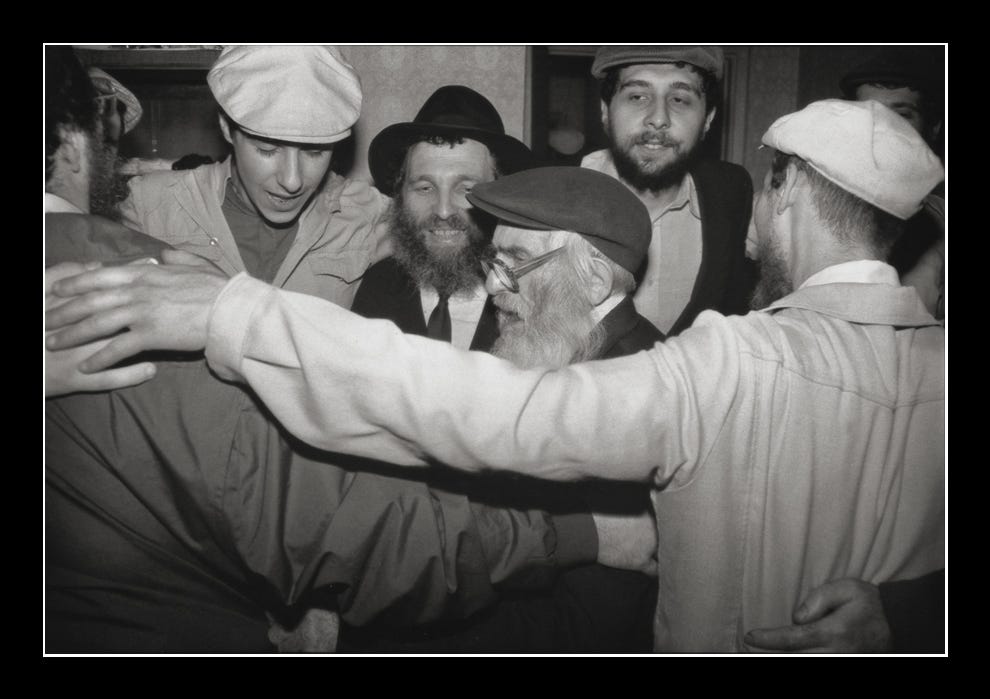There will be posts when I feel like it. If it’s too often for you, please unsubscribe, I truly don’t care. Substack sucks, the “newsletter” format sucks, the people who run substack are stupid leftist kids, they suck too…
On the subject of Alter Rebbe and Napoleon War of 1812.
As the cold grips the winter and my birthday collides with Alter Rebbe death, I frequently feel in my bones the terrible Russian exile, the cold, the untimely death of the Alter Rebbe. Memento mori indeed. I can feel the grip of winter in my soul. It’s been a historical enigma for me, why did the Alter Rebbe run from Napoleon? Then repeated with the escape of the very last Lubavitcher Rebbe Rashab. The movement died in Russia, as occasionally, the way I feel myself. Specially the strange description of Napoleon by Alter Rebbe in the last days of his life, the root of all evil, etc.
I think there is finally a plausible answer. At least it describes the evens on the psychological level, the only level interesting to me.
Nick Burns, in his substack, he recounts the opening of the War and Peace: Trump’s Napoleon phase.
“Well, Prince, so Genoa and Lucca are now just family estates of the Buonapartes. But I warn you, if you don’t tell me that this means war, if you still try to defend the infamies and horrors perpetrated by that Antichrist—I really believe he is Antichrist—I will have nothing more to do with you and you are no longer my friend.”
Such are the words of Anna Pavlovna Scherer that open Tolstoy’s War and Peace, amply indicative of this Russian society lady’s suffering from an acutely severe case of Bonaparte Derangement Syndrome...
One of the novel’s narrative strands tracks the cycles of Napoleon’s reputation in Russian high society across the first decades of the 1800s. As of 1805, Anna Pavlovna’s words stand for the general feeling among the smart set in Petersburg and Moscow. Napoleon, with his lowly Corsican origins and association with all the satanic and subversive doctrines of revolution in France, would have been an easy candidate for opprobrium in orthodox Tsarist Russia even without the presence in Russian society of a number of aristocratic French émigrés. “Buonaparte” was the “Drumpf” of the time—a refusal to grant Napoleon the title of emperor, and a de haut en bas insistence on the original Italian spelling of his name.
It appears that Alter Rebbe had a Bonaparte Derangement Syndrome that infected the upper crust of Russian Society, as in our days with Trump. Russians, much more sensitive to the national origin of a person, always emphasize the lowly Corsican origin of Napoleon. He is not French, he is a lowly Corsican peasant. I always wondered about that and finally, I understand.
And then Burns describes the change in the mood when the Russian upper class accepted Napoleon’s legitimacy. Alter Rebbe, as a provincial Jew, must have been late to the acceptance phase. And it cost him his life.
“We have been through the “Buonaparte” phase—totalizing disdain, opprobrium and “resistance,” backed up by the impression that the insurgent is an illegitimate fluke. We now find ourselves at the Emperor Napoleon phase, in which a significant faction within the highest ranks of the American elite, especially in tech, but to diminishing extents within (respectively) the finance, corporate, legal, entertainment, party-political and media worlds an attitude of self-interested accommodation is now being adopted.”
This is a strong take from Nick Burns.



